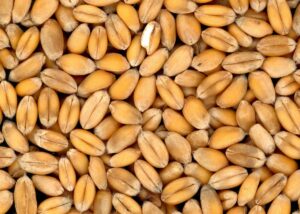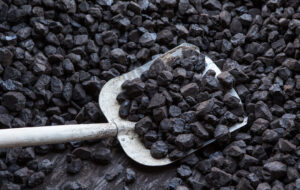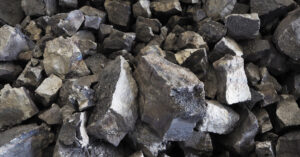
The Ministry of Social Policy of Ukraine has announced a change in the rules for importing and accounting for humanitarian aid starting December 1.
“On September 5, the Cabinet of Ministers of Ukraine adopted a resolution “Some issues of humanitarian aid entry and accounting under martial law”. According to the resolution, the rules for importing and accounting for humanitarian aid are being changed, and information about it will be digitized in an automated system,” the ministry’s press service said.
It is noted that among the main changes is the introduction of an accessible electronic tool for accounting for humanitarian aid.
In particular, using the web platform “Automated System for Registration of Humanitarian Aid,” organizations intending to import humanitarian aid will be able to register, log in to the site, form and submit a declaration, which will be sent to customs through information exchange.
“The system will automatically assign a unique code to the declaration. This code will be used by customs officers to let the cargo through,” the agency emphasized.
This preserves the declarative principle of importing humanitarian aid under martial law, and simplifies the process of importing such goods.
It also stipulates that organizations importing humanitarian aid will submit public reports after its distribution.
“After the organization has imported the aid, it will have to describe it in the system before distributing it. Then, the data will have to be entered: when and where (without specifying personal data of individuals) the cargo was distributed, whether there are any leftovers and what they are. Such a mechanism will show the path of humanitarian aid from the donor through the recipient to the recipients and guarantee the transparency of the process,” the ministry added.
In addition, the adopted resolution cancels letters of guarantee, which means that humanitarian aid for the military will be imported without additional bureaucratic burden.
According to the report, the system will be launched on December 1, 2023.

Poland will not allow grain imports from Ukraine after September 15, as the interest of Polish farmers is more important to the country’s government than any EU rules on this issue, said Polish Minister of Agriculture and Rural Development Robert Telusz.
“We know what could have happened if grain (from Ukraine) had arrived in Poland after September 15. Especially since the price of grain is currently low, and the granaries are already full. We know that this is in our interest and we will defend it. That is why I am going to Spain with this message to the summit of agriculture ministers,” the Polish publication farmer.pl quoted him as saying during the National Agricultural Exhibition in Czestochowa last Sunday.
Telusz informed the public that on Monday he will visit Spain, where he will convince the European Union to extend the ban on grain imports from Ukraine to the EU until the end of 2023 after September 15, together with representatives of other frontline countries – Hungary, Bulgaria, Slovakia, and Romania.
“When the war in Ukraine broke out, Polish society, including farmers, became the saviors of the Ukrainian cause. (…) Polish society became a lifesaver. Today in Brussels, we are loudly declaring: a dead rescuer is a bad rescuer. We will not allow the Polish farmer to lose because of arbitrary decisions of officials from Brussels,” said Deputy Minister of Agriculture Krzysztof Ciezora.
According to Janusz Kowalski, the State Secretary of the Ministry of Agriculture, the Polish government has supported Polish farmers to the tune of EUR 3.181 billion, while the amount of financial support from the European Commission is only EUR 63.614 million.

PJSC “Centrenergo” plans to import coal to pass the fall-winter period of 2023/2024, General Director Andriy Churkin said.
“Completely on our own coal we will not pass this winter. And in the near future, Centrenergo plans to sign contracts with foreign companies. There are already certain developments, I think that within a month there will be a result. We need to reach a volume of at least 80 thousand tons of coal per month,” he said in an interview with Interfax-Ukraine.
According to him, this would be a sufficient reserve, but the company is also preparing to work on gas and fuel oil.
“At Tripilska TPP, for example, there is an opportunity to work on fuel oil. We have already imported it, and I have already asked the technical directorate of the plant to make a trial run on this type of fuel,” Churkin said.
He specified that “the closest and most accessible for us is coal from Poland,” while the company buys fuel oil from PJSC Ukrnafta.

China has increased its imports of semiconductor component manufacturing equipment to a record level ahead of the entry into force of export restrictions by Japan and the Netherlands, the Financial Times reports.
According to the General Administration of Customs of the People’s Republic of China, the volume of imports of equipment for the production of chips in June and July amounted to about $ 5 billion, which is 70% higher than the figure for the same period last year ($ 2.9 billion).
China purchased the bulk of the equipment from the Netherlands and Japan. These two countries announced in January of this year that they would join the U.S. export restrictions on China’s semiconductor equipment.
In Japan, these restrictions will come into effect on July 23, and in the Netherlands – on September 1. Once they come into effect, buyers of equipment will have to obtain special licenses from the governments of these countries.
As the FT notes, the increased imports of chip-making equipment shows that China wants to avoid any disruption to its plans to expand semiconductor production.
“This is one of China’s responses to export restrictions imposed by the Netherlands and Japan,” notes Lucy Chen, vice president at Taiwanese analyst firm Isaiah Research. – Beijing is stockpiling equipment in advance to negate potential supply chain problems.”
China’s imports of Dutch chip-making equipment doubled in June and July compared with May due to increased shipments by ASML Holding NV, FT industry sources said.
ASML chief executive Peter Wennink said on an investor conference call last month that there was strong demand for equipment designed to produce non-advanced chips from Chinese buyers.
Imports from Japan also rose. In addition, there has been an increase in shipments to China of chip-making equipment from Singapore and Taiwan, the FT notes.
CHINA, IMPORT, PRODUCTION, ЧИП

Ukraine in January-July this year reduced imports of coke and semi-coke in physical terms by 63% compared to the same period last year – to 116.485 thousand tons.
According to statistics released by the State Customs Service (SCS), coke imports in monetary terms for this period decreased by 64.1% to $55.411m.
Ukraine did not export coke in January-March this year, as it did in December of the previous year. In April, 668 tons were delivered, in May and June there were no exports, in June exports resumed, total for 7M-2023 was exported 1.352 thousand tons, which is lower than the same period last year by 63.4%.
In monetary terms, it decreased by 66.2%, to $334 thousand. Exports were made to Moldova (100% of shipments in monetary terms), imports were mainly from Poland (93.87%), Colombia (3.70%) and Hungary (1.49%).
As reported, Ukraine in 2022 reduced exports of coke and semi-coke in physical terms by 98% year-on-year to 3.856 thousand tons, in monetary terms by 97.6% to $1.011 million. The main exports were to Hungary (42.63% of supplies in monetary terms), Georgia (37.69%) and Turkey (17.41%).
Ukraine imported 359.192 thousand tons of coke and semi-coke in 2022, which is 54.5% less compared to 2021. In monetary terms, imports decreased by 50.3% to $174.499 million. Imports were mainly from Russia (43.43% of supplies in monetary terms, before the war), Poland (30.07%) and the Czech Republic (13.15%).
As a result of the war, a number of mines and coke plants are located in territories temporarily outside of Ukraine’s control.

Ukraine in January-July this year increased exports of ferroalloys in physical terms by 23.2% compared to the same period last year – up to 299.458 thousand tons.
According to statistics released by the State Customs Service (SCS), in monetary terms, ferroalloys exports decreased by 40.5% to $260.870 mln.
The main exports were to Poland (57.24% of shipments in monetary terms), Turkey (11.36%) and the Netherlands (6.76%).
In addition, during this period Ukraine imported 4.379 thousand tons of these products, which is 72.9% less compared to January-July-2022. In monetary terms, imports decreased by 69% – to $18.561 mln.
Imports were mainly from Armenia (18.37%), India (17.86%) and China (15.15%).
As reported, Ukraine in 2022 reduced exports of ferroalloys in physical terms by 47.7% compared to the previous year – to 349.560 thousand tons, in monetary terms by 46% – to $ 564.136 million. At the same time, the main supplies were made to Poland (53.25% of exports in monetary terms), the Netherlands (13.13%) and Romania (5.66%).
In addition, last year Ukraine imported 20.546 thousand tons of these products, which is 65.5% less compared to 2021. In monetary terms, imports decreased by 59.1% to $72.705 million. Imports were mainly from Norway (22.67%), China (15.60%) and Kazakhstan (14.10%).
The business of Stakhanov and Zaporizhzhya Ferroalloy Plants (NWF and ZZF) was organized by PrivatBank (Kiev) before the nationalization of the financial institution. Nikopol Ferroalloy Plant is controlled by EastOne Group, established in the fall of 2007 as a result of restructuring of Interpipe Group, as well as by Privat Group.